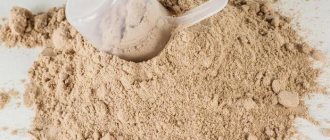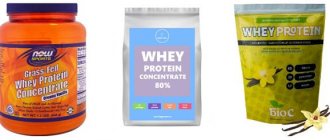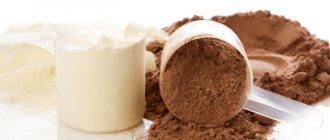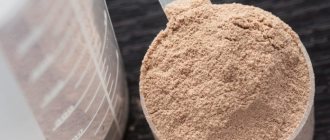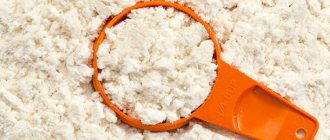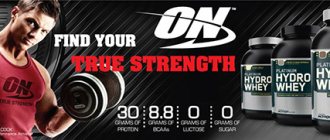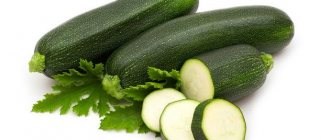What is casein and how is it different from protein?
Milk protein consists of two types of protein - casein (80%) and whey protein (20%).
Casein is classified as a “slow” protein because. digested and absorbed within a few hours , compared to whey protein, which takes about 30 minutes to digest.
This is one of the most important differences between the two and explains the benefits of casein in bodybuilding (see below).
Like other animal proteins, casein is a complete protein , i.e. it contains all the amino acids necessary for the body in optimal proportions 1.
It also contains many other biologically active compounds that are important for health and immunity in particular 2.3.
— What is the difference between casein and protein?
Nothing. This is a protein that is part of milk protein and is digested slowly.
Casein protein is obtained from milk. This is a “slow” protein with a complete amino acid profile
The benefits and harms of casein protein
Benefits of casein for athletes:
- It takes a long time to digest, on average from 5-6 hours, up to a maximum of 8. This makes casein valuable for preventing catabolism at night, avoiding protein breakdown during overnight fasting.
- Allows you to gain muscle mass by providing the body with amino acids for a long time.
- Allows you to lose weight with proper intake and a low-carbohydrate diet, saturating the body for a long time, preventing overeating.
- Suitable for a snack between main meals, as well as before training.
- Casein is well tolerated, except for those for whom milk sugar (lactose) is contraindicated.
- Mixes well in water, milk and juice.
Disadvantages of casein:
- It is not suitable for taking in the morning after waking up, as it acts slowly and does not have time to prevent the production of cortisol, unlike whey varieties of protein.
- Contraindicated for people who are lactose intolerant.
- May cause digestive disorders. Possible side effects are nausea, diarrhea, bloating.
- Contains milk sugar, carbohydrates and fats, so it is not suitable for athletes on a strict diet.
Types of casein
Conventionally, casein can be divided into two groups
- casein from whole dairy products;
- sports or industrial casein.
Sports casein comes in two main forms:
- micellar casein - most often used in protein sports nutrition;
- casein hydrolyzate - protein molecules are divided into parts, which speeds up digestion and absorption compared to micellar casein; Due to its rapid absorption, it is sometimes used as an alternative to whey protein.
Both micellar casein and casein hydrolysate are derived from milk protein.
Both types have a very high protein concentration, but there are significant differences between them.
Micellar casein
Micellar casein is considered the best type of sports casein . It is obtained by cold filtration, which keeps the protein molecules intact and is not contaminated by chemicals.
This is important because this whole protein is digested slowly , providing the muscle growth benefits of slow proteins while also retaining the health benefits.
In addition, according to doctors' reviews of the benefits of whole protein versus free amino acids, the digestion of whole foods releases a range of substances (enzymes and hormones, including growth hormone) that are important for health and muscle gain.
Casein hydrolyzate
Casein hydrolyzate consists of casein molecules split into pieces, which turns it into a “fast” protein: it is digested as quickly as whey.
Those. in fact, such casein loses its advantage as a “slow” protein , which makes it so useful for gaining muscle mass.
But what’s even worse is that it acquires a number of significant disadvantages .
In the production of hydrolyzate, acids and temperature heating are used, which not only reduces its taste (casein acquires a bitter taste), but also significantly reduces the quality of the protein : a large percentage of it is damaged and becomes non-functional 19.
Such protein not only becomes useless, but can also increase the risk of cancer (see our material on the dangers of sports casein).
Share with us your experience of losing weight, using sports nutrition or pharmacology!
In addition, casein hydrolyzate is more expensive than micellar casein due to additional processing costs.
Micellar casein is the best type of sports casein; hydrolyzate loses the properties of a slow protein, has worse taste and, moreover, is more expensive
We recommend : Protein and alcohol: how does drinking beer affect muscle growth?
Organoleptics and composition of rennet casein
Rennet casein has a white color, non-lumpy consistency and a neutral milky odor. The pure product also has a neutral taste when mixed with water. Per 100 g there are 1420 kJ/335 kcal.
Nutritional value of rennet casein:
- – proteins – at least 90%;
- – fats – maximum 0.7%;
- – carbohydrates – maximum 0.2%;
- – minerals – 8.8%.
The moisture content of rennet casein is a maximum of 9%.
Detailed amino acid profile (per 100 g):
- – Glutamine – 19.5;
- – Proline – 9.7;
- – Leucine – 9.1;
- – Lysine – 8.5;
- – Aspartic acid – 7.6;
- – Valine – 5.4;
- – Serine – 5.3;
- – Isoleucine – 5;
- – Tyrosine – 4.7;
- – Threonine – 4.5;
- – Phenylalanine – 4.4;
- – Alanine – 3.4;
- – Argninine – 3.3;
- – Methionine – 2.6;
- – Histidine – 2.4;
- – Glycine – 1.8;
- – Tryptophan – 1.8;
- – Cystine – 0.9.
19.5 g comes from BCAA, branched chain amino acids. BCAAs, according to several studies (including ), make up up to 30% of skeletal muscle, so it is important that the protein has a high concentration of these amino acids.
Essential amino acids in the composition of rennet casein account for 47 g. For comparison, soy protein contains 45.7 g of essential amino acids, egg protein - 43.4 g, and beef protein - 45.9 g. From this point of view, rennet casein is second only to whey proteins, they contain approximately 50 g of essential amino acids and about 24 g of BCAA.
What foods contain casein protein?
Sources of casein protein are dairy products and all their derivatives.
The ratio between whey protein and casein varies slightly among different types of dairy products. To roughly estimate the quantitative content of casein in them, you need to multiply the amount of protein by 0.8 (80%).
For example.
— How much casein is in cottage cheese?
100 grams of cottage cheese contain 16 grams of protein, which means casein accounts for approximately 16 g * 0.8 = 13 g.
By comparison, a 33 gram serving of sports casein contains approximately 24 grams of protein (casein), 3 grams of carbohydrates, and 1 gram of fat.
| Casein content in products (per 100 g) | ||
| Product | Squirrel | Casein |
| Cottage cheese | 16 | 13 |
| Greek yogurt | 7 | 5.6 |
| Milk | 3.4 | 2.7 |
| Cheese | 24 | 24 |
| Sports casein | 72 | 72 |
Good sources of casein protein are cottage cheese and cheese . All of the protein in it is almost exclusively casein, as the whey protein is separated during the manufacturing process.
In cottage cheese, the relative proportion of whey protein is higher than in cheese, but its advantage is that it has significantly lower fat content.
Less obvious sources of casein protein may be other foods that contain milk or milk derivatives. For example, ice cream, baked goods, pizza, baby food. The quantitative content of casein in them is small.
Sources of casein protein are dairy products (milk, cottage cheese, cheese); it is also found in small quantities in other foods produced using milk
We recommend : Casein or Cottage Cheese? When is the best time to eat cottage cheese for weight loss and muscle gain? Is it possible for the night?
What determines protein quality?
All food proteins are not equally valuable to the body; some are more valuable than others. Therefore, each type of protein is assigned a biological value , as we noted in other articles about proteins.
The quality of protein depends primarily on the source of the protein (milk, egg, soy, etc.), as well as on the method of physical and chemical processing to which it was subjected, and of course on the body’s ability to absorb it.
Currently, bodybuilders mainly opt for whey and casein protein (milk protein).
Whey protein is an excellent choice, first of all:
- high biological value (BC) - 100
- high content of essential amino acids (especially branched chain amino acids - leucine , isoleucine and valine )
- pleasant taste
- gentle processing during production (no heat or acids)
- maximum saturation of muscles with amino acids
All these facts make whey protein the best choice.
All results are confirmed by clinical studies in laboratories, and most importantly, in the gym . However, you should not forget about milk and casein protein in your diet, as many do, prescribing it only bad, unproven reviews. However, this is understandable; competition in sports nutrition, especially among such a popular supplement, is so high that people are ready to do anything for their own benefit.
Many athletes who use sports supplements in their menu know that taking whey protein on an empty stomach is not advisable or effective, since it is absorbed too quickly. Indeed, whey significantly increases protein synthesis , but a huge proportion of amino acids are used for energy, instead of building muscle mass .
Quality protein
In addition, there are large differences in the quantitative and qualitative composition of this type of protein. Many athletes do not pay attention to the packaging at all, they buy whatever whey protein they need, instead of buying what they need, for example, the concentrate is cheap, has a low filtration system, the isolate is affordable, almost ideal for building muscles, and hydrolysate is very expensive, protein It is split into fractions, so it is absorbed instantly.
Casein, unlike whey, is digested slowly and gradually saturates the muscles with amino acids . Casein does not stimulate protein synthesis as strongly as whey, but it does have a powerful anti-catabolic effect that whey does not. In addition, the combination of casein and whey protein slows down the absorption of whey, thereby protecting the amino acids of the latter, and maximizing their use by muscles for protein synthesis. This benefit from the combination of proteins, casein and whey, is one of the main reasons why such protein mixtures are sold by sports nutrition stores.
Why is casein needed in bodybuilding? Beneficial features
In bodybuilding and other strength sports, casein has been used as a sports nutrition for decades.
If you think what we do is important, support our project!
YES!
It all started with dairy products, which were drunk in liters and eaten in kilograms, and then gradually sports casein in powder form appeared on the scene.
Today, casein is better known as a type of sports nutrition. This is one of the most popular types of protein. It is available in two main forms: the above micellar casein and hydrolyzate.
— What is better: sports casein or casein from natural products?
The question is controversial, as is the more general one: “what is better: sports protein or natural protein products?”
The answer to this question largely depends on who you ask it to.
Manufacturers and sellers of sports nutrition will no doubt try to convince you that without their products “it is impossible to build muscle mass.”
Independent scientists and doctors will answer that “you can gain weight by eating exclusively natural products” (as bodybuilders did during the golden era of bodybuilding), and will also point out numerous facts about the harm of sports (technical) casein.
Do you want an example?
In the material: Which is better soy or whey protein? we told how the popular bodybuilding.com portal, describing the benefits of soy protein (obviously, to stimulate its sales), relies on the deliberately unobjective arguments of “scientists” collaborating with one of the soy protein manufacturers.
But here we compare the absolutely contradictory points of view of popular Internet resources (represented by the famous sports nutrition guru Jimma Stoppani, who also writes for bodybuilding.com) and scientists regarding the benefits and effectiveness of another sports supplement - arginine.
Scientists warn that among sports caseins there are a lot of low-quality products, the protein in which is not only non-functional (useless for muscle growth), but can also increase the risk of cancer. Read our material about the dangers of sports casein.
High-quality casein has amazing properties that explain its benefits.
We recommend : How to take BCAA amino acids and is it worth it? Maybe protein is better?
1 Benefits of casein for gaining muscle mass
The effectiveness of any type of protein for muscle growth is determined by the completeness of its amino acid composition and how well it is absorbed.
Casein has both.
Read us on the networks
Firstly, it has an ideal amino acid profile, which contains all the nonessential and essential amino acids, including the most important for muscle growth - leucine, one of the three BCAA 8-10.
Secondly, the benefits of casein are due to its slow digestion and absorption time . This means that once consumed, it provides nutrition to muscle cells for an extended period of time.
In contrast, whey protein is known to be digested very quickly, causing a spike in the concentration of amino acids in the blood.
This is very good at a time when muscle cells have a high need for nutrients: immediately after or during a long workout.
At the same time, if fast whey protein is drunk at times when the need for amino acids is low, then a sharp increase in their concentration in the blood can have the opposite effect: they do not have time to be “absorbed” by the muscles and some of them are converted into fat or energy.
From the point of view of muscle growth and preservation of muscle relief, this is not very good.
Due to the slow, gradual absorption of casein protein, it is useful for muscle synthesis (creating muscle cells and repairing existing ones) at times when the risk of catabolism is high, for example, at night during sleep 4.5 or when it is not possible to eat regularly . For this reason it is called “anti-catabolic protein” 6.
We recommend : How to take protein for muscle growth?
See how scientific research backs this up.
Scientific Research on the Benefits of Casein for Building Muscle
In one of the experiments, scientists gave one group of subjects the protein casein, the other - whey protein, and then over the course of 7 hours they checked the composition of amino acids in the blood, in particular, leucine - one of the most anabolic amino acids included in BCAA 7.
What they found:
- after taking whey protein, there was a rapid spike in the concentration of amino acids in the blood, which also quickly decreased; as for casein, there was no pronounced peak, but the increased amino acid content was observed for a much longer time;
- In the case of casein, significantly fewer amino acids were “burned” as fuel for energy, meaning more of them remained available for muscle function 8.
For these reasons, casein protein is often recommended to be taken before bed to prevent muscle catabolism during the “forced” abstinence from eating at night.
Another study demonstrated that taking casein before bed in young athletes resulted in an increase in muscle fiber cross-sectional size of 8.4 cm2, compared with 4.8 cm2 in those taking a placebo. 12 Also in the casein group, muscle strength increased. grew by 20% more.
The benefit of casein for gaining muscle mass is explained by the slow rate of absorption: it better protects muscle cells from catabolism and creates better conditions for muscle growth during moments of forced abstinence from meals (for example, at night)
2 Benefits of casein for weight loss
It has been scientifically proven that protein is good for weight loss. The same applies to a type of protein - casein.
Briefly, this is explained by the fact that protein gives better satiety, reducing the feeling of hunger, and also requires more energy for its digestion.
It is important to understand that when we talk about the benefits of casein for weight loss, we do NOT mean casein, and especially sports casein. No. We're talking about any protein.
More information about the benefits of protein for weight loss is at the link above, but here we present only the results of one of the scientific experiments.
This study tested the effectiveness of a low-calorie diet for weight loss on three groups of classic overweight police officers 11.
In the experiment:
- one group of subjects took casein protein (1.5 g per kg of body weight) + was on a low-calorie diet (80% of the required daily calories) + did strength training;
- the other took whey protein and was also on a low-calorie diet and exercised;
- the third was just switched to a low-carbohydrate diet.
The experiment lasted 12 weeks.
As a result, the scientists found that those who took casein gained twice as much muscle mass as those who took whey protein, lost ~3 kg more weight than those who took whey protein and 5 kg more than those who took whey protein. I was just restricting calories.
The percentage of body fat decreased 2 times more in the casein group than in the whey protein group.
Scientific research confirms the benefits of casein protein for weight loss, but this is not the merit of casein and, especially, the corresponding sports nutrition: any protein is useful for weight loss, especially whole protein (NON-hydrolyzed)
We recommend : What NOT to eat and what SHOULD you eat to lose weight?
3 Other Health Benefits of Casein
A number of scientific studies confirm that consuming casein has some other important health benefits:
- Benefits for the immune system: Research suggests that casein has antibacterial effects, improving immune system function 13;
- control of the level of triglycerides (fats) in the blood: when consuming casein in one experiment, the level of triglycerides dropped by 22% 14;
- reduction in the level of free radicals: the biologically active components of casein have an antioxidant effect, preventing the formation of dangerous free radicals, which are one of the factors in the development of cancer 15.
Casein protein
Before moving on to considering casein directly as a sports nutrition, you need to generally understand what kind of “beast” it is.
Casein is a complex protein that is the basis of milk, and is contained in it in the form of calcium salts (calcium caseinate). This is why casein protein is considered the best source of calcium among all existing protein shakes.
The name casein comes from the Latin word "caseus", which means "cheese". It is thanks to the milk protein casein that cheese and cottage cheese are obtained from milk.
Casein harm
The question of the dangers of casein is partly similar in essence to the question of whether protein is harmful.
Scientific research suggests the relative safety of casein and other proteins in moderate doses.
Eating protein in large doses is hazardous to health. This especially applies to those people whose kidney or liver function is already impaired 16-18, but is not limited to them.
With excessive protein consumption, the acid-base balance in the body changes towards acidification, which stimulates the leaching of calcium from bones, the formation of kidney stones and creates conditions for the growth and development of cancerous tumors.
From this point of view, animal proteins with high biological value—the most popular in bodybuilding—are especially dangerous.
One of the reasons is their high content of the amino acid methionine, which is also popular in bodybuilding as a separate supplement.
Sometimes the following recommendation is given: “If you take 1-2 doses of protein/casein per day, then the likelihood of any side effects is low.”
But any such precise dosage instructions do not stand up to criticism: what if 2 kg of meat and the same amount of cottage cheese and fish are eaten with two shakers of casein?
The total amount of protein in the diet matters.
It is important to remember that any beneficial substance or product in too large quantities can turn into poison.
And athletes typically consume huge amounts of protein and amino acids both as part of sports nutrition and natural products.
It is also impossible not to mention that scientists warn about the low quality of most sports caseins, since technological processing with temperature and acid damages the protein molecules.
Therefore, it makes sense to give preference to natural products containing casein protein or milk protein and its concentrate, which are produced without harsh technological processing.
Finally, a quote from one of the researchers on the benefits and harms of casein and other dairy products about the dangers of sports casein (full material here):
“Casein protein from whole milk is the most functional, as it contains protein molecules assembled into clusters containing calcium, phosphate and citrate ions, and it complements the acid composition of the body without leading to excessive oxidation.
This cannot be said about most other types of casein, which have very strong oxidizing properties” 20.
Casein, like other types of protein, is not harmful to health when consumed in moderate doses, but can cause allergies and digestive problems in case of lactose intolerance. Excessive consumption of casein and other animal proteins can be very dangerous to health.
We recommend : Harmful sports nutrition: facts, reasons, recommendations
Casein allergy and lactose intolerance
There are some side effects unique to casein.
A fairly common problem is casein allergy and lactose intolerance, which will prevent you from reaping the benefits of this supplement.
There is nothing scary about this, since there are many other non-dairy types of protein (egg, soy, plant combinations) that are no less (or slightly less) effective for gaining muscle mass and losing weight.
The technological processing of milk protein generally removes lactose (there is less lactose in hydrolyses and isolates than in concentrates), but trace concentrations may remain. Lactose intolerance in casein can lead to bloating and other unpleasant digestive problems.
An allergy to casein is manifested by symptoms characteristic of other types of allergies: swelling of the lips, mouth, face, throat (which can make breathing difficult), redness of the skin and the appearance of a rash, runny nose, tearing, sneezing, etc.
Allergies may appear within a few minutes of ingestion and require prompt medical attention.
Real reviews
Reviews of casein supplements are generally good. Most athletes recommend taking it, consider it effective, and it does not cause stomach problems.
Read more: Sports nutrition for weight loss for women * Fat burners for weight loss
There are very few negative reviews you can hear about casein. This can happen if an athlete bought a low-quality product from a manufacturer with a dubious reputation. This is the only way the product may turn out to be ineffective or not at all.
Buy a high-quality product from top manufacturers, and the result will not take long to arrive!
PowerBoy, March 9, 2020 I tried caseins from Dymatize and Optimum Nutrition - I really liked both of them, I can’t even decide which one is better. Both have a good taste, identical digestibility, and approximately the same effectiveness. I took protein both before bed and in the morning, or even during the day, since I didn’t have any other protein then. I'm pleased with the result.
Markus, 11 Mar 2015
I have tried all the top products, they are not much different from each other, they all have good effectiveness, and always have a pleasant taste. The only thing they differ in is the packaging. Most likely, even the raw materials are the same.
Ka4ur, 12 Mar 2015
I tried Casein Pro from Universal Nutrition, the protein was highly effective and did not cause stomach problems. The first time I bought it with vanilla flavor, it seemed tasteless, but I still finished it to the end. The next time I took the chocolate one, now I enjoy it, it’s very tasty, there is no cloying sweet aftertaste, everything is in moderation. The protein tastes good and is effective!
How to take casein for weight loss and muscle gain
The general rule for taking protein to gain muscle mass is this: fast types immediately after training, during or before, slow ones - before bed or when it is not possible to eat often.
See in detail How to take protein for muscle growth?.
Casein protein is most often recommended to be taken before bed, 1-2 scoops (25-50 g).
If you are using sports casein, you can simply prepare the shake in a shaker with water. Or, for a change, beat it with a mixer and put it in the freezer: after 5-10 minutes you will get protein ice cream (especially tasty with chocolate or vanilla flavor powder).
When losing weight, it is important to increase the total amount of protein throughout the day; the exact time of intake is not particularly important. As well as the type of protein: whether it is casein, eggs or cottage cheese.
By the way, some recent studies indicate that the exact time of protein intake in bodybuilding for building muscle mass does not matter much 21.
We recommend : Is it possible to eat eggs while losing weight? Which is better: raw, boiled or fried?
We recommend : Cottage cheese in bodybuilding: benefits for gaining muscle mass, losing weight
— What is better for the night: cottage cheese or casein?
There is no difference other than the serving size of cottage cheese and powder that you need to eat to get the same dose of protein.
Always remember that there is no magic in sports proteins and casein in particular : you can build muscle mass by eating exclusively natural protein products. The only significant advantage of sports proteins is that they are simply more convenient to use.
— Which is better casein or whey protein?
Both are good, but in due time. Both proteins are of high quality amino acid profile and are very well digestible.
The difference is in the speed of digestion and absorption. Whey protein is a “fast” protein; it is ideal to take it immediately after a workout, when the muscles are “starved” and need building material for “repair” and recovery. The benefits of casein’s “slow” properties are discussed a little higher.
To gain muscle mass, casein is best taken before bed or when you have to skip a full meal. For weight loss, casein can be taken at any time: it is not the exact time that matters, but the total protein content in the diet
We recommend : How to properly take protein for muscle growth
The third criterion is assimilation
A large study involving several professional volunteer bodybuilders concluded that whey protein is absorbed much more quickly by a training bodybuilder than a casein supplement. This leads to a logical conclusion: whey protein is a fast protein, casein protein is a slow one.
But the experiment did not end there. The observations continued for several more hours, and it was at this time that casein showed itself. After 1.5 hours after consumption, whey protein ended its effect due to the fact that it was completely exhausted by the body. And, casein continued to be absorbed for another 5 hours. This gives rise to another positive quality: feeding the body with amino acids for a long time. As the dose of casein is allowed to increase, the duration of replenishment time also increases.
Today, casein protein is one of the essential supplements for many athletes, including professional bodybuilders who were or are competing athletes, masters of sports and Olympic champions.
What scientists and doctors say
What time should you go to bed to wake up refreshed?
Many studies have been conducted on the effects of casein on humans. According to their results, sports supplements do not harm health, provided that you purchase a quality product and follow the rules for taking it. Doctors do not recommend taking casein for people with kidney disease, liver disease, or intolerance to the components of the supplement.
Casein protein is a very useful product for weight loss. To speed up fat burning, take supplements and include foods rich in this substance in your diet. However, remember that results will only come if you combine casein intake with diet and fat-burning workouts. Buy a quality product, follow the dosage, then you will get the maximum benefit from it. This concludes my story about casein protein. Subscribe to the article and share information on social networks. See you again!
